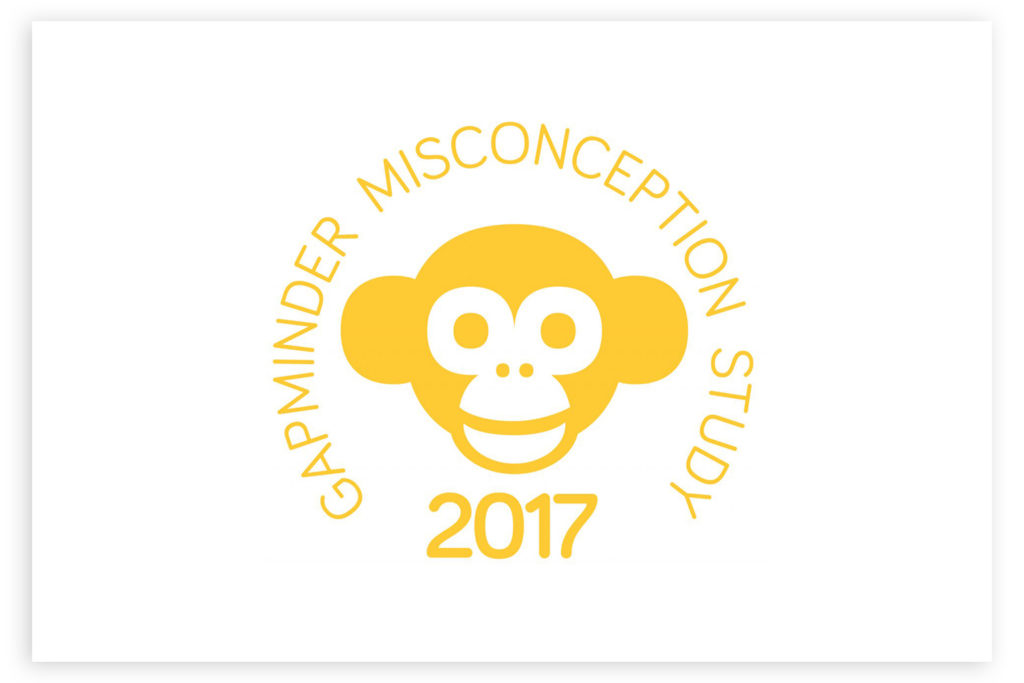 A. 4 billion
A. 4 billion B. 3 billion
B. 3 billion C. 2 billion
C. 2 billion
Correct answer
According to the UN’s Population Prospects dataset, the number of children in the year 2100 will be roughly the same as it is today: just under 2 billion.

The ignorance we found
The results for this question were terrible; just 15% our respondents answered correctly! More than twice as many would have got the question right if they had chosen randomly without even reading the question.

Why do people pick the wrong answer?
Pretty much everybody knows the world’s population is increasing, but the reasons why population numbers are increasing is widely misunderstood.
Any suggestion that the number of children will rise over the next 100 years demonstrates a lack of understanding of the factors that cause population growth. So here’s a quick lesson:
Women are NOT having more children than they did in the past. Quite the opposite, in fact—women in most countries are having fewer children than they did 50 years ago. Population growth isn’t caused by more babies being born… it’s caused by more babies surviving to adulthood. More specifically, it’s caused by more babies surviving to adulthood in the poorest countries, where previously they didn’t.
And by the way, it’s not a prediction that the number of children being born each year will stop increasing—it has already happened. We’ve consistently seen a drop in the number of children born per woman globally since the mid-1950s, and it’s not a trend that’s going to stop anytime soon.
If you’d like to learn more about the factors that cause population growth, you can watch Hans’ TED talk on the subject here.

